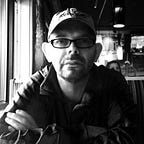Liberty U Eliminates Philosophy Department: the Uneasy combination of Philosophy and Fundamentalism
The other day, Mark Foreman, professor of philosophy and religion at Liberty University, made the startling announcement on his Facebook page that Liberty University was getting rid of its philosophy department. He wrote: “Liberty University has chosen to completely dissolve the philosophy department. As of June 30 I am unemployed.”
The entire faculty of philosophy is kicked out, including the well-known Christian apologist, Gary Habermas. The bulwark of conservative and fundamentalist evangelicalism has decided it no longer needs philosophy. While there is no way to know what has made the university come to this decision unless it make a public announcement, one wonders why. Public opinion of the astuteness of evangelical thought as gauged by it recent appearance in the public sphere is already not too high. So why give the adversary a stick to beat the dog?
I want to briefly ponder the following question. Does the closure of the philosophy department at LU perhaps signals something everybody already secretly knew: philosophy is not possible within a fundamentalist framework.
This may not come across as very kind toward the poor faculty who have been booted out of the institution as if I’m giving them an extra kick in the…
